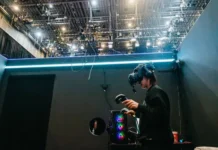Meta is not the only company looking toward the metaverse. The new sphere of online interaction has captured widespread attention, and technology companies like Microsoft, Apple, and Google all have their eyes on the space. While this new form of online interaction begins to take shape, brands want to know how it will impact the future of commerce.
What is the metaverse?
The metaverse is not a specific place or one type of technology. It refers to a shift in how we interact with technology, specifically in virtual and augmented realities. Talking about the metaverse today has been compared to talking about the internet or “cyberspace” in the 1970s. Likely, the term and what it means will transform over the next decade and beyond.
However, the emergence of metaverse technologies, including social commerce, augmented reality (AR) and virtual reality (VR), cryptocurrency, and Non-Fungible Tokens (NFTs), are already impacting brand strategies. For example, several companies have launched AR and VR applications to help buyers test and shop their products. These technologies present expansive possibilities for creating new offerings in digital and physical spaces as the metaverse becomes reality.
Evolving E-commerce
The metaverse is already taking shape, with commerce as a key part of its purpose. To prepare for what the new e-commerce realm will look like, brands can prepare for the following developments:
- AR and VR innovations – Augmented and virtual reality are the latest iterations of interactive content that brands are exploring to provide innovative experiences. Predictions place the CAGR for the global augmented and mixed reality market at 79.2%. Amazon, for example, introduced a Room Decorator tool allowing customers to visualize furniture in their own spaces. Charlotte Tilbury created a virtual store that consumers can explore at their convenience.
We have yet to see the true potential of AR and VR, partially because the hardware and technology required to participate have been bulky and expensive. Now, however, brands like Meta are offering VR headsets and similar technology at increasingly lower costs, signaling that these technologies will become more accessible, which in turn will lead to critical-mass adoption. As VR becomes more widespread, brands will explore new ways to connect with customers.
- Hyper-personalization – Demand for personalized customer experiences is growing. According to a survey in 2021, 71% of customers expect personalized experiences from brands, and 76% will be frustrated without it. Brands are finding ways to offer targeted promotions, relevant product or service recommendations, one-on-one interactions with staff, and engagement opportunities like live shopping.
The metaverse will take personalized customer experiences to a new level. In a digital world, consumers can interact with brands without the barriers of the physical world – time, gravity, and geography, for example. They can visit virtual stores anywhere and anytime they like. Additionally, brands are looking into new types of experiences such as virtual games. For example, Nike premiered NIKELAND, a 3D space on the Roblox gaming platform where players can win points to redeem for digital apparel. Moving forward, more companies will be experimenting with using metaverse technologies to customize shopper experiences at scale.
- Expanded social commerce – Buying products directly on social media platforms is increasingly popular, and is predicted to reach $1.2 trillion worldwide by 2025. Just like brands are adopting the tools to enable purchasing directly on Facebook, Instagram, and TikTok, the metaverse will likely include new platforms where brands will have the opportunity to sell.
Although we can’t say for certain what those platforms will look like, we know that brands will need the tools in place to keep their social shops up to date with the latest inventory and e-commerce information. Brands can also prepare with chatbots that can provide customer care directly within the social media platform to ensure customers get the best service on whatever platform they choose.
Preparing for the Next Phase of Commerce
The development of the metaverse will likely span the next decade and evolve several times. To prepare for this next era of online interaction, however, brands can start now by investing in AR and VR, social commerce, and other tools that enable seamless, omnichannel, and personalized experiences.
The brands that begin their metaverse journeys today will lead the pack in this next frontier of commerce.

























































